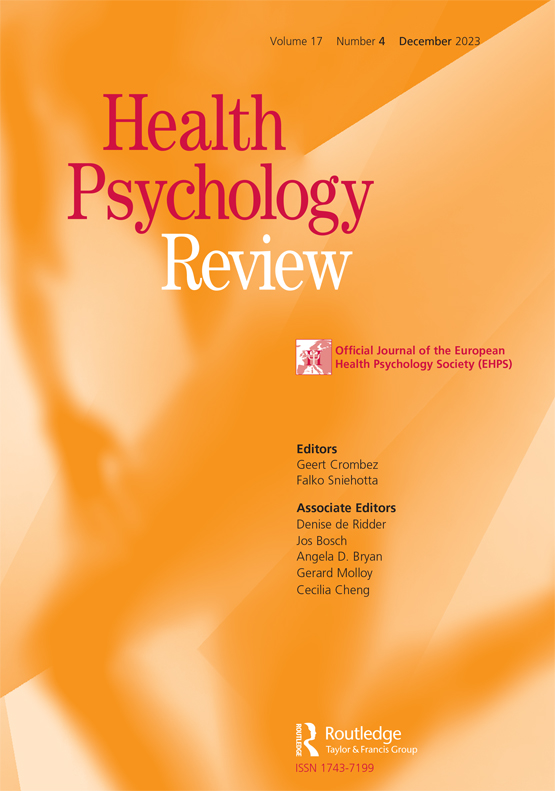Habit and habitual behaviour.
IF 9.7
1区 心理学
Q1 PSYCHOLOGY, CLINICAL
引用次数: 4
Abstract
Writing in 1899, William James observed that ‘ninety-nine hundredths or, possibly, nine hundred and ninety-nine thousandths of our activity is purely automatic and habitual’ (James, 1899, pp. 65–66). Nearly 125 years later, the concept of habit continues to stimulate important research regarding the most useful definition of habit, and how to harness habit to understand, predict, and change health-related behaviour (e.g., Gardner, 2015; Verplanken, 2018; Wood & Runger, 2016). Phillips and Mullan (2022) offer a thoughtful synthesis of theory and evidence regarding how habit can be applied to complex health behaviours. Their review addresses an important question that habit researchers are often asked: how credible is it to propose that learned cue-behaviour associations can underpin and sustain complicated real-world health behaviours? Drawing on a definition of complex behaviour as that which involves separable components and a greater number of subactions (or ‘steps’), Phillips and Mullan address this question by suggesting that the same concept – i.e., habit – can underpin both simple and complex behaviours. Significantly however, they argue that ‘complex habits’ should be theorised differently to ‘simple habits’, to better recognise the multiple components of complex habits and the rewards that Phillips and Mullan suggest are needed for complex habits to form. In this commentary, we expand discussion of two areas of Phillips and Mullan’s argument. First, we debate aspects of the definition of habit. Second, we highlight the importance of distinguishing between ‘habit’ and ‘habitual behaviour’ when considering behavioural complexity. We argue that conceptualisations of key terms have important implications for understanding, measuring and changing habit and habitual behaviour.习惯和习惯行为。
本文章由计算机程序翻译,如有差异,请以英文原文为准。
求助全文
约1分钟内获得全文
求助全文
来源期刊

Health Psychology Review
PSYCHOLOGY, CLINICAL-
CiteScore
21.30
自引率
0.00%
发文量
28
期刊介绍:
The publication of Health Psychology Review (HPR) marks a significant milestone in the field of health psychology, as it is the first review journal dedicated to this important and rapidly growing discipline. Edited by a highly respected team, HPR provides a critical platform for the review, development of theories, and conceptual advancements in health psychology. This prestigious international forum not only contributes to the progress of health psychology but also fosters its connection with the broader field of psychology and other related academic and professional domains. With its vital insights, HPR is a must-read for those involved in the study, teaching, and practice of health psychology, behavioral medicine, and related areas.
 求助内容:
求助内容: 应助结果提醒方式:
应助结果提醒方式:


